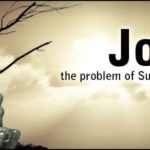Kill the Notifications – Mr Eales
Good morning school,
New Year and Chapel talks are always a good time for reflection. A time to look back at previous talks and advice given. One always hopes that when we speak somebody out there hears us.
Four years ago, I spoke about courage and self-belief. For those that remember, I spoke about Emmit in the Lego movie and how he overcame his personal challenges. In the year that followed, I spoke about the benefits of pressure and how this is a good thing, how it enables us to accept that we have been here before and that pressure is simply part of our daily lives.
This got me thinking further as to why we meet as a school several days during a week and why this is important. Meeting for assembly and chapel is about the shared experience. It is one of the few things we all share as the whole RHS community. It helps to give us meaning and recognition. In short it helps us to understand where we “fit in”.
This desire for recognition and meaning is ingrained deep in our human pschye. Understanding of where we fit in is something that humans have always been looking for. Through the ages whether it was looking to the skies and drawing meaning from meteor showers and comets, or following religious signs and symbols, our deeply ingrained desire to find where we fit in is important to our self-worth.
And it is no different today…..
Beep – sorry just need to check this, I just got a like on my Facebook page recognising my chapel talk today…
Beep- sorry again, that just to let me know my clan village is being raided…
I admit it. I am addicted to notifications. Who isn’t? The online-shared experience, the feeling of belonging – it’s just too much for me to resist.
Every single social media network’s growth and revenue depends on how frequently you and I check our screens. Companies hire neuroscientists and psychologists to understand our minds better so that the ‘Fear of Missing Out’ can be used to their advantage.
Autoplay videos, disappearing stories, they are all programmed to achieve the same goal — that you either don’t leave or you keep coming back to it as many times as possible. And it’s definitely working to their advantage. You see, Facebook, for example, charges advertisers for every single impression that their ad receives. So even if you are mindlessly scrolling through your feed 10 times a day, like I do, not even clicking on anything, you are still helping Facebook make money.
So are push notifications bad?
Well, no. Originally, push notifications were designed to keep you out of your phone rather than constantly drawing you in. When BlackBerry launched push email in 2003, users rejoiced: They did not need to constantly check their inbox for fear they would miss important messages. When an email comes, BlackBerry promised, your phone will tell you. Until then, do not worry about it.
The Apple Watch was initially conceived as a way to keep you off your phone, offering clever filters and even adaptive vibrations to help differentiate between notifications you care about and those you do not. The reality is however that notifications, whether on a phone, iPad or watch, simply give companies another buzzable platform and direct access into your daily life.
Over the last few years, there has been an increasingly loud call for a re-evaluation of the relationship between humans and smartphones. For all the good that phones do, their grip on our eyes, ears, and thoughts can create real and serious problems.
However, smartphones are not the problem. It’s all the buzzing and dinging, endlessly calling for our attention. A 2016 study found that people looked at their phones 47 times a day on average; for young people, more like 82. In 2013, Apple proudly announced that 7.4 trillion push notifications had been pushed through its servers. The intervening years have not reversed the trend.
There is however a solution: Kill your notifications.
Yes, really. Turn them all off.
You may discover that you do not miss the stream of cards filling your lockscreen, because they are never really for your benefit.
They are for brands and developers, methods by which thirsty growth hackers can grab your attention anytime they want. Allowing an app to send you push notifications is like allowing a store manager to grab you by the ear and drag you off the street and into their store whenever they want. You are letting someone into your life anytime they want.
So my morning has, however, already been filled with notifications; a Facebook posts from an acquaintance who has commented on a stranger’s post who I do not really care about; an upcoming TV show on Netflix that I do not really care about; and most exciting of all, every single morning at 6 AM, my new daily maths puzzle becomes available.
It is clear to me that push notifications are ruining my life.
Yesterday Mark Johnson spoke about New Year resolutions. He encouraged us to take up a challenge of renewal. Ask yourself the following questions:
What do you do when you are idle? Check your phone for notifications?
What do you do when you are feeling anxious? Check your phone for notifications?
What do you do when you wake up in the morning? Check your phone for notifications?
What do you do when you cannot fall asleep? Check your phone for notifications?
What do you do when you feel awkward? Check your phone for notifications?
If, like me, you answer yes to any or most of these questions, it is probably a good time to take up the challenge of turning off your notifications and take back your life.
On that note, I wish you all a good and notification free day.















Post Comment
You must be logged in to post a comment.